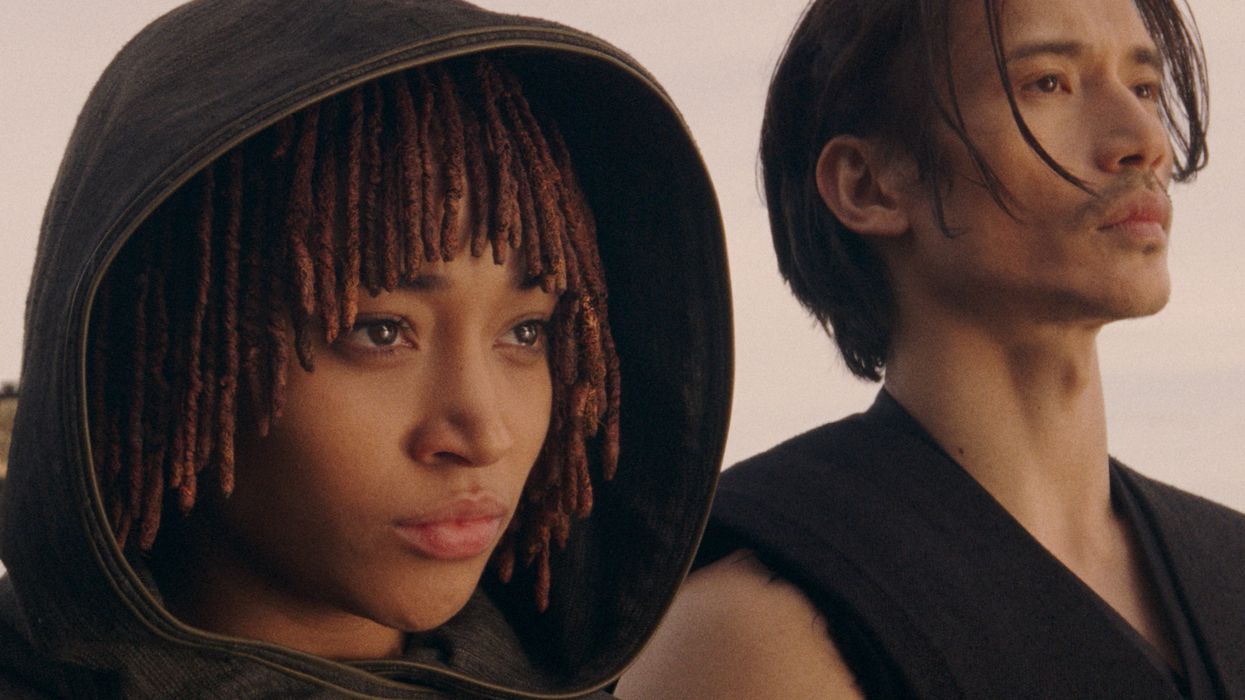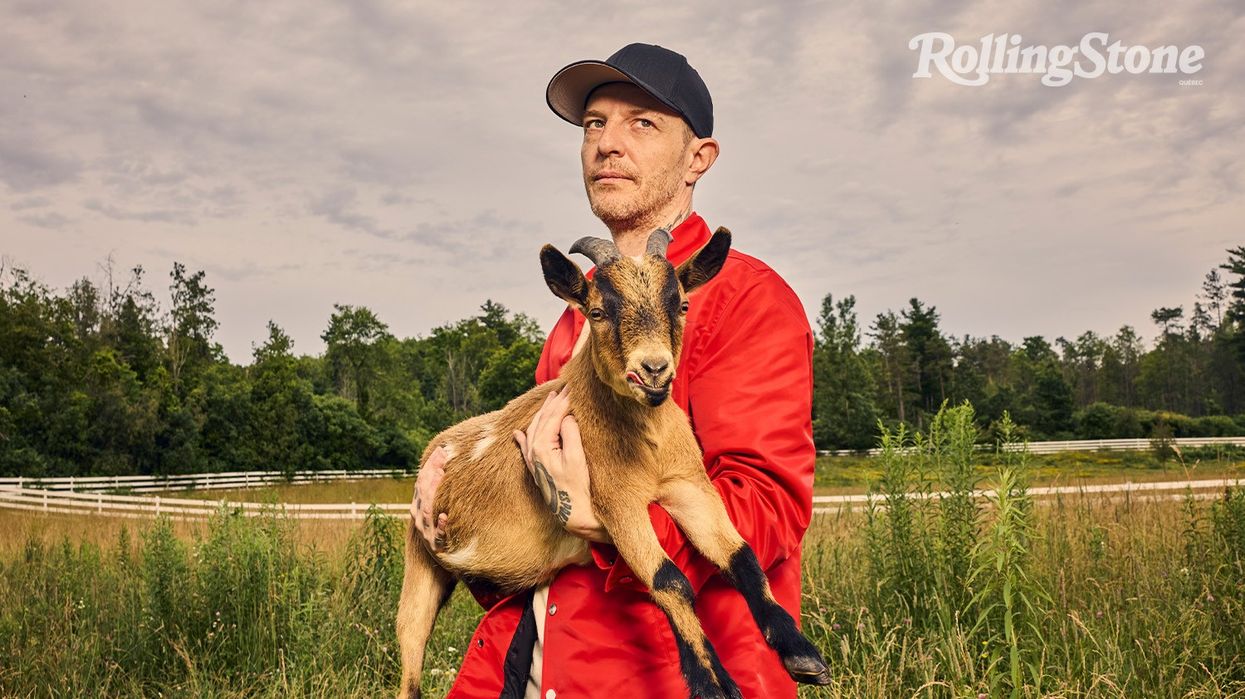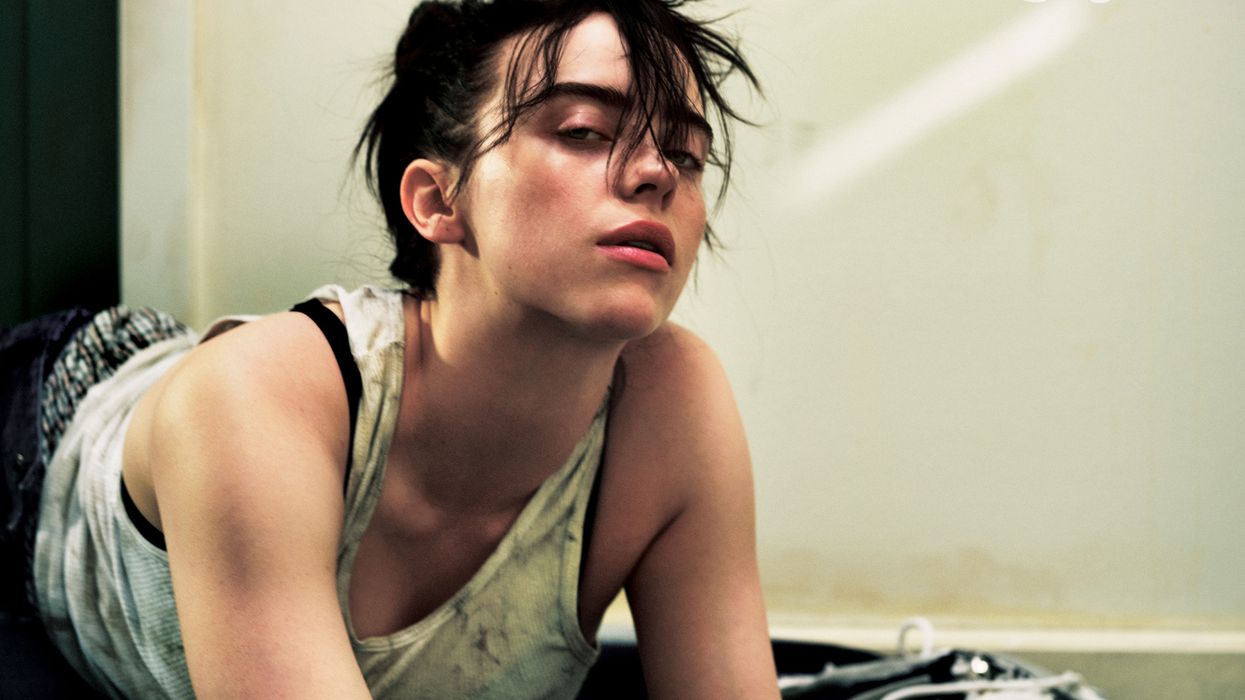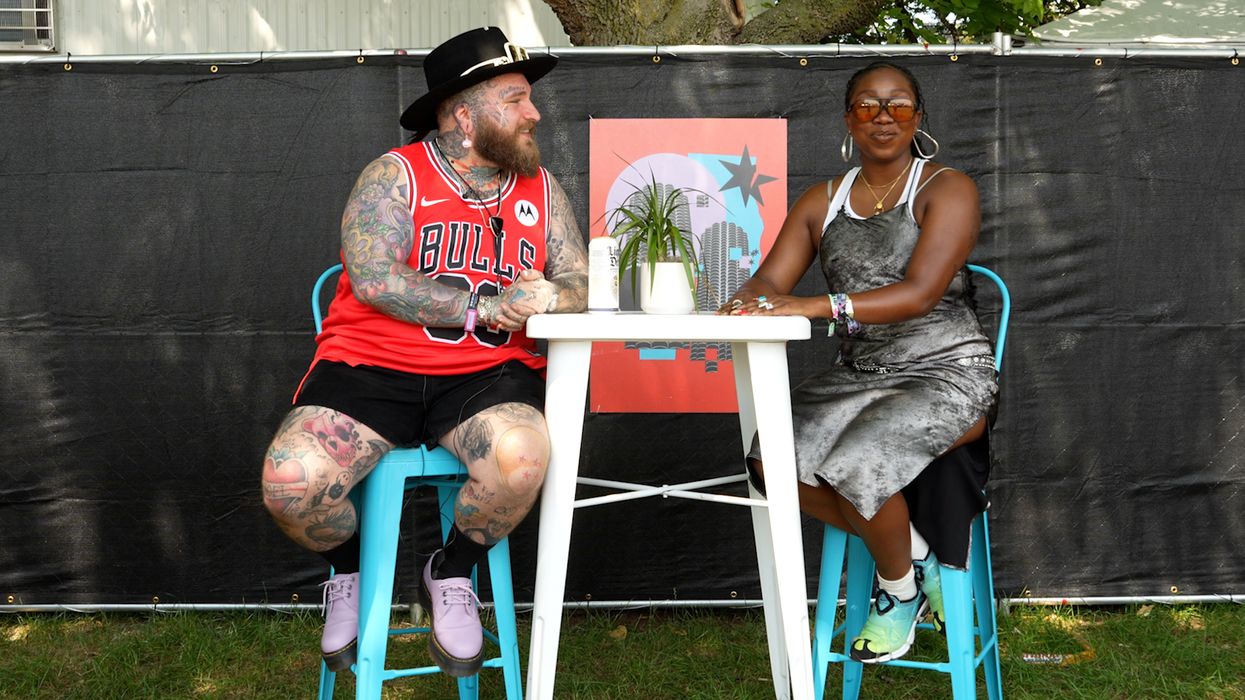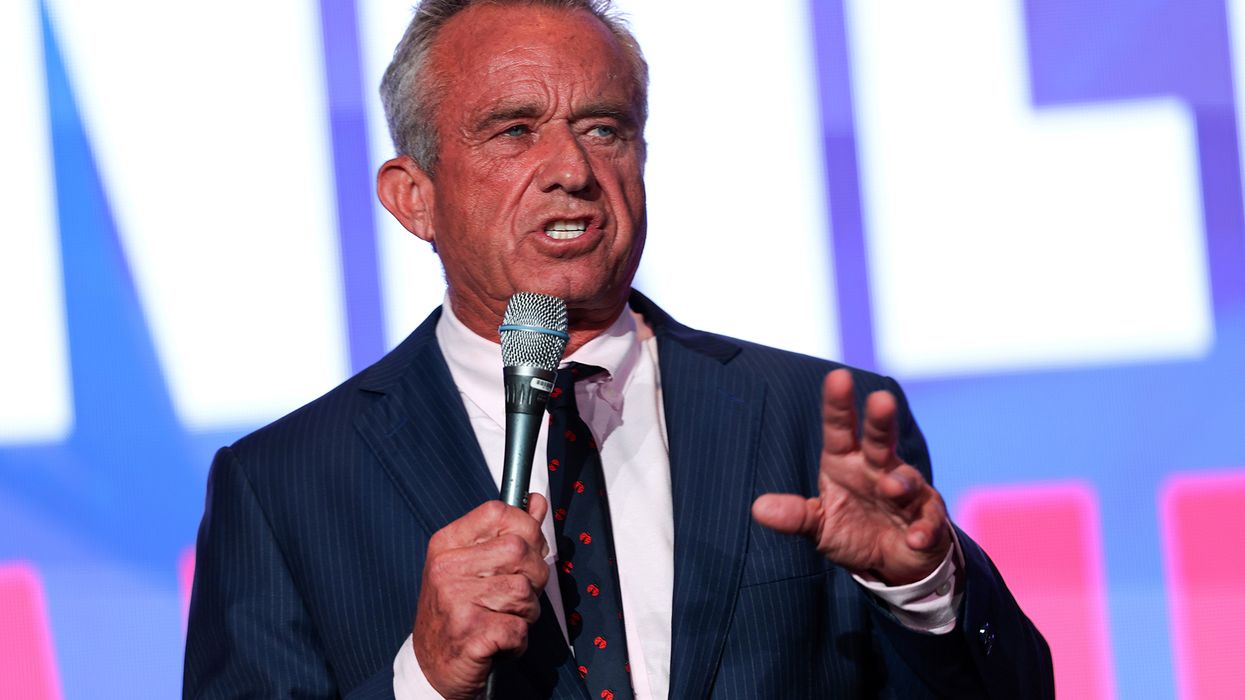In director Roger Ross Williams’ Cassandro, we first meet Saúl Armendáriz — the real-life luchador portrayed by Gael García Bernal — when he’s still scraping his way through the amateur circuit. He’s got an uphill battle ahead: Not only is he smaller and lighter than most of his brawny opponents, he’s also openly gay and the subject of taunts and jeers from his leotard-clad colleagues.
And then, about 20 minutes in, Cassandro arrives. Armendáriz decides to embrace a new identity as one of lucha libre’s exoticos, extravagant male fighters who frequently — and proudly — wore drag while competing in the sport. Borrowing his exotico name from a popular Nineties telenovela, Cassandro makes his way to the ring as a Celia Cruz version of “I Will Survive” plays in the background. Tentative at first, his confidence builds, and his performance becomes more fun and flamboyant by the second. By the end of the scene, everyone is chanting his name.
So much of the magic in that moment depends on Bernal’s easy charisma. In real life, he has a quieter kind of gravitas, especially in his muted gray sweater and neat rimmed glasses. And yet, without really trying, he also commands attention when he walks into a room — or in this case, the Par Ici Café inside New York’s Hotel Fouquet one drizzling afternoon in December. As he strides toward me, heads immediately turn. One man stares at him for an especially long time, perhaps trying to remember what movie he last saw Bernal in.
The list is long: Since his breakout role as the desperate Octavio in Alejandro González Iñárritu’s debut film, Amores Perros, Bernal has played a young Che Guevara in The Motorcycle Diaries (he won a BAFTA for it), a wildly active dreamer in The Science of Sleep, a cartoon skeleton in Coco, and an eccentric orchestra conductor in the series Mozart in the Jungle. (Notable deep cuts include a disturbed young man in James Marsh’s unsettlingly dark The King and a backpacker traveling through Georgia in Julia Loktev’s muted drama The Loneliest Planet.)

Out of all the movies Bernal’s made, he’s never had to train and exercise as much as he did for Cassandro. “Without a doubt, this is the role that’s demanded the most physical preparation from me,” he says in Spanish. “It was a lot of work and dedication and learning certain techniques.” He spent about six months building strength and agility, and then began two months focusing on his lucha libre moves. “It was fun, but really hard to be in constant pain everyday. But you learn how to fall, you learn how to fly, you learn how to recover, and you learn how to help the people around you.”
Bernal was actually a big lucha libre fan growing up in Mexico. He lights up instantly as he names popular luchadores from the Nineties that he loved: Atlantis, Octagón, Konan, Vampiro, Tinieblas, plus exoticos like Pimpinela Escarlata and Rubi Rubalcaba. He had some awareness of Cassandro, but he dove deeper into his life and impact once work on the film began. Cassandro, unfortunately, suffered a stroke that left him struggling to speak before production started; Bernal met him briefly before and after shooting. He was drawn to the way Cassandro and other exoticos challenged the preconceived notions people have about sports, masculinity, and Mexican culture.
“What contact sport has stars at a high level that are gay? Lucha libre! That’s great. I like that because it’s something that changes perceptions, especially in the U.S., where they go, ‘[Lucha libre] is so macho!’ And you’re like, ‘Look at this! You’re going to say it’s only for machos?’… It was part of the game, the theater, the performative part.”
By now, portrayals of LGBTQ relationships and storylines aren’t new for Bernal: Alfonso Cuarón’s coming-of-age road classic Y tu mamá también, a movie he did alongside his best friend and film partner Diego Luna, became a groundbreaking cultural touchstone that spoke to queer curiosity and sexual awakenings. In Pedro Almodóvar’s multilayered, metafictional drama Bad Education, Bernal plays two trans women who crisscross between the film’s interlocking narratives. The actor, who was born in Guadalajara and raised in Mexico City, describes growing up in an open-minded, free-loving family that was rooted in theater (his mother was an actress; his dad was a director) and shaped his broad curiosity toward art and film.
“The duality between genders, I always felt close to that. When we did Y tu mamá también, for example, it didn’t feel like there was a taboo to break to me because the idea [of this being a taboo] was totally unknown to us. In a way, I think that’s what Cassandro and the exoticos and his contemporaries did. In some ways, they were subverting all of this to get society to come out of the closet and away from its prejudices.”
He remembers that in Mexico, the kiss between him and Luna in Y tu mamá también would spark cheers and applause at theaters. Similarly, there’s a moment in Cassandro that made the internet’s head explode: when Bernal’s character kisses Bad Bunny, who plays a wrestling agent’s assistant in the film. Was Bernal surprised by how much attention that moment got?
Benito is at the absolute pinnacle of fame, so obviously this was a kind of bait that was going to get the whole world talking.
“It didn’t surprise me, no. Benito is at the absolute pinnacle of fame, so obviously this was a kind of bait that was going to get the whole world talking,” he says with a laugh. “But also, it was actually really nice to work with him, even though it was fast.” Bad Bunny, a massive wrestling fan who made his WWE debut last year, bonded with Bernal over their shared love of lucha libre. “He was only there for a short time, but he was always so sweet, and he was always approaching this with a lot of respect.”
Now that Bernal’s not body-slamming people in the ring or making out with superstars, he’s at work with La Corriente del Golfo, the production company he runs with Luna. He’s cagey about certain projects — a rumored Mexico-set spinoff of The Boysreported by Variety earlier this yearimmediately clams him up. “No, no,” he says nervously. “Someone had leaked something about it, but I can’t …” He trails off before breaking into a charming, Cassandro-esque smile in lieu of an apology.
What he will mention is an upcoming film called Tesis sobre una domesticación, based on a book by Argentine writer Camila Sosa Villada, who often examines social dynamics and her own trans experiences. “It’s beautiful,” Bernal gushes. “It’s super interesting.” And there’s also La Máquina, a Hulu limited series about a boxer that’ll bring him to the small screen with Luna.

He might have kissed Bad Bunny, but his real soulmate is Luna. They’ve known each other since they were kids, and these days, they’re in constant contact — texts, phone calls — as they plan out new projects together.
“Before I used to think this was normal, but seeing what the world is like, I understand it’s pretty exceptional: It’s a really strong friendship that also manifests itself through work in an incredible way,” Bernal explains. “That doesn’t happen — we’ve never had a single problem in our work together, not one.” Not a single fight? “None! Zero, zero.”
He can’t pinpoint what it is about their bond that lets them collaborate so seamlessly. Instead, he tells me that he’s close to a couple that’s been together for about 35 years. “Everyone is always asking them ‘How do you do this?’ because today, it’s strange to stay together. And they always say, ‘We have no idea.’ It’s the same with me and Diego,’” he says, laughing lightly.
There’s a ton more they want to do: Bernal would love to see La Corriente del Golfo expand, develop even more projects, and work years ahead on things. But he also believes in leaving some things to the divine forces: “You just have to trust in the mysteries of the film gods.”






